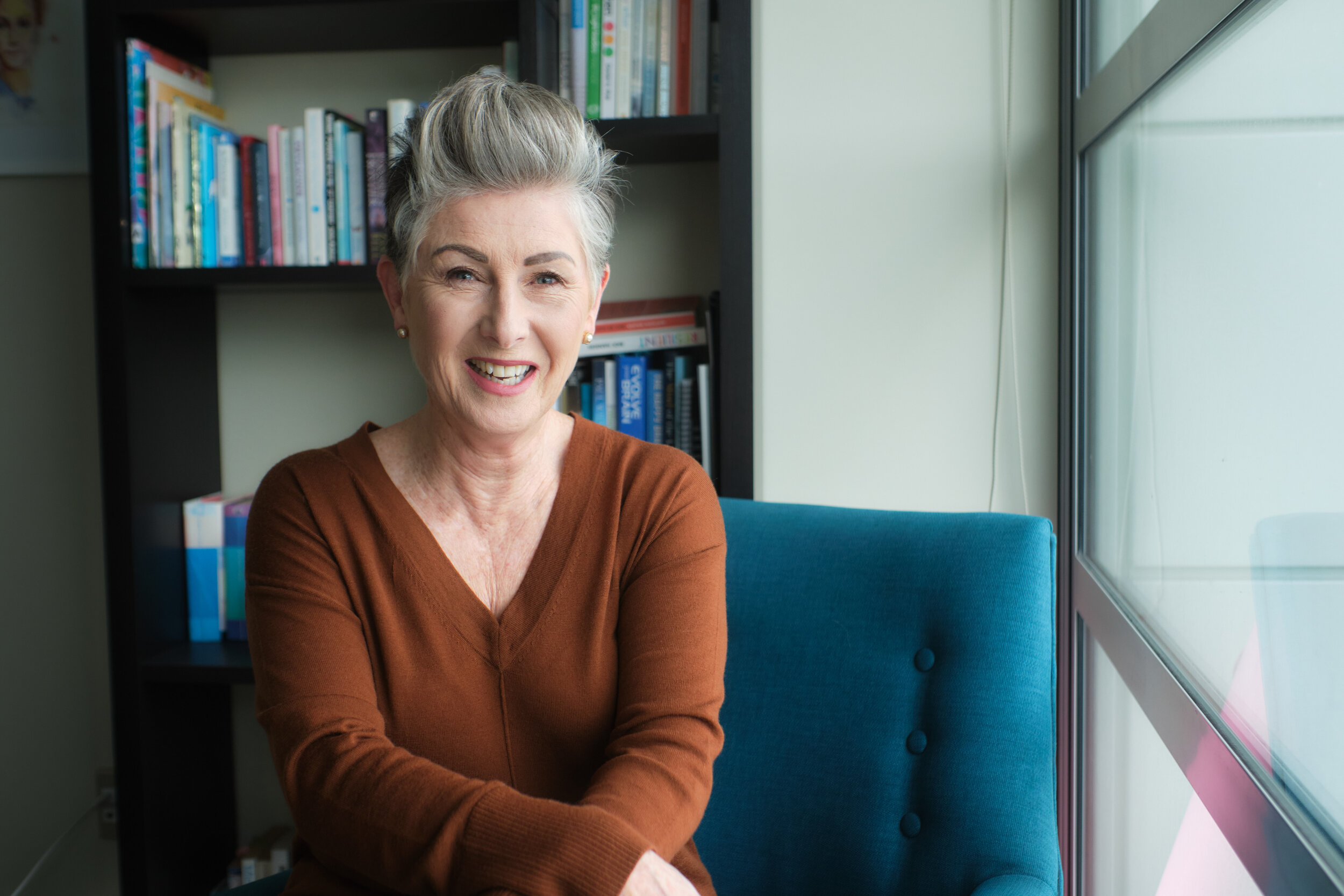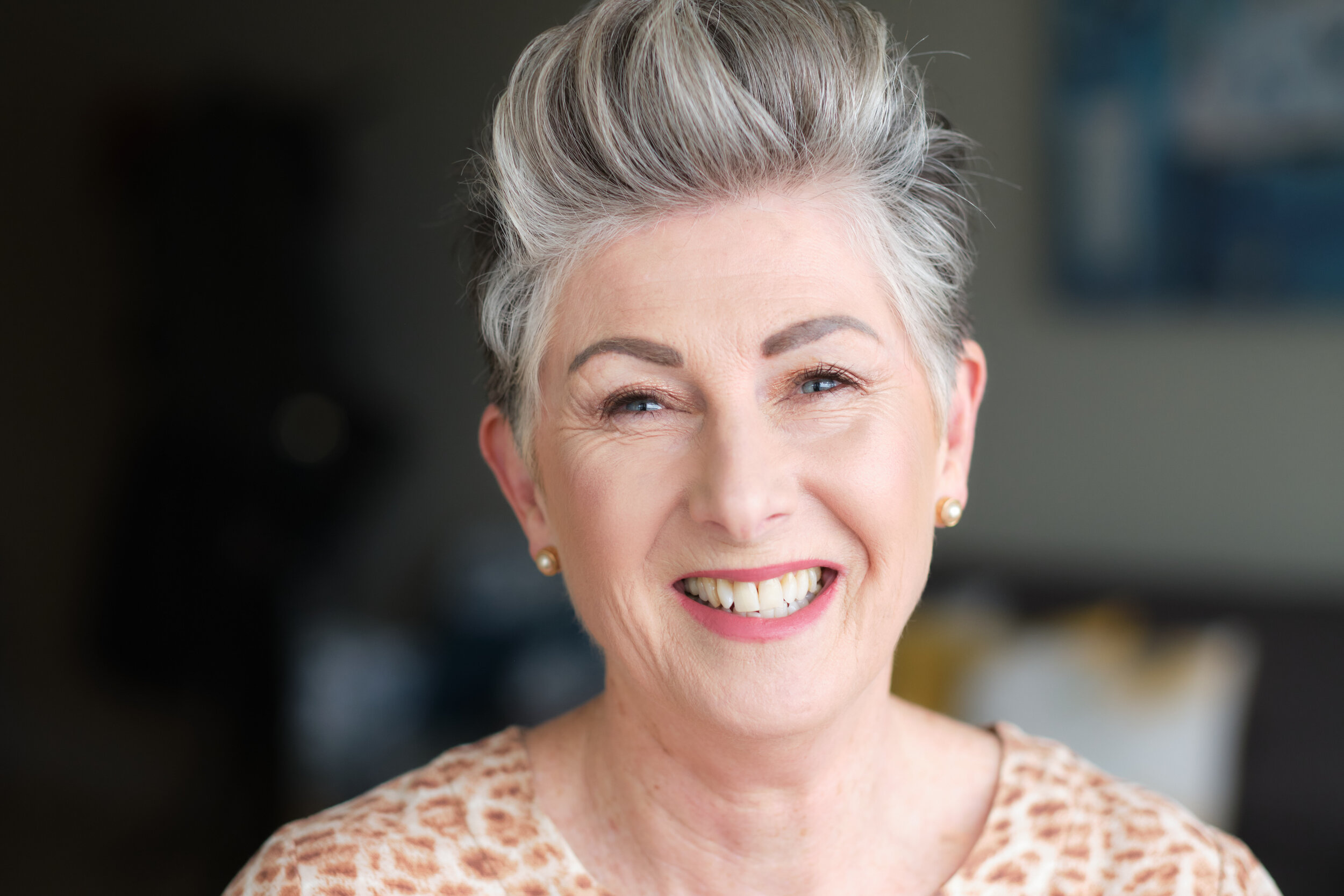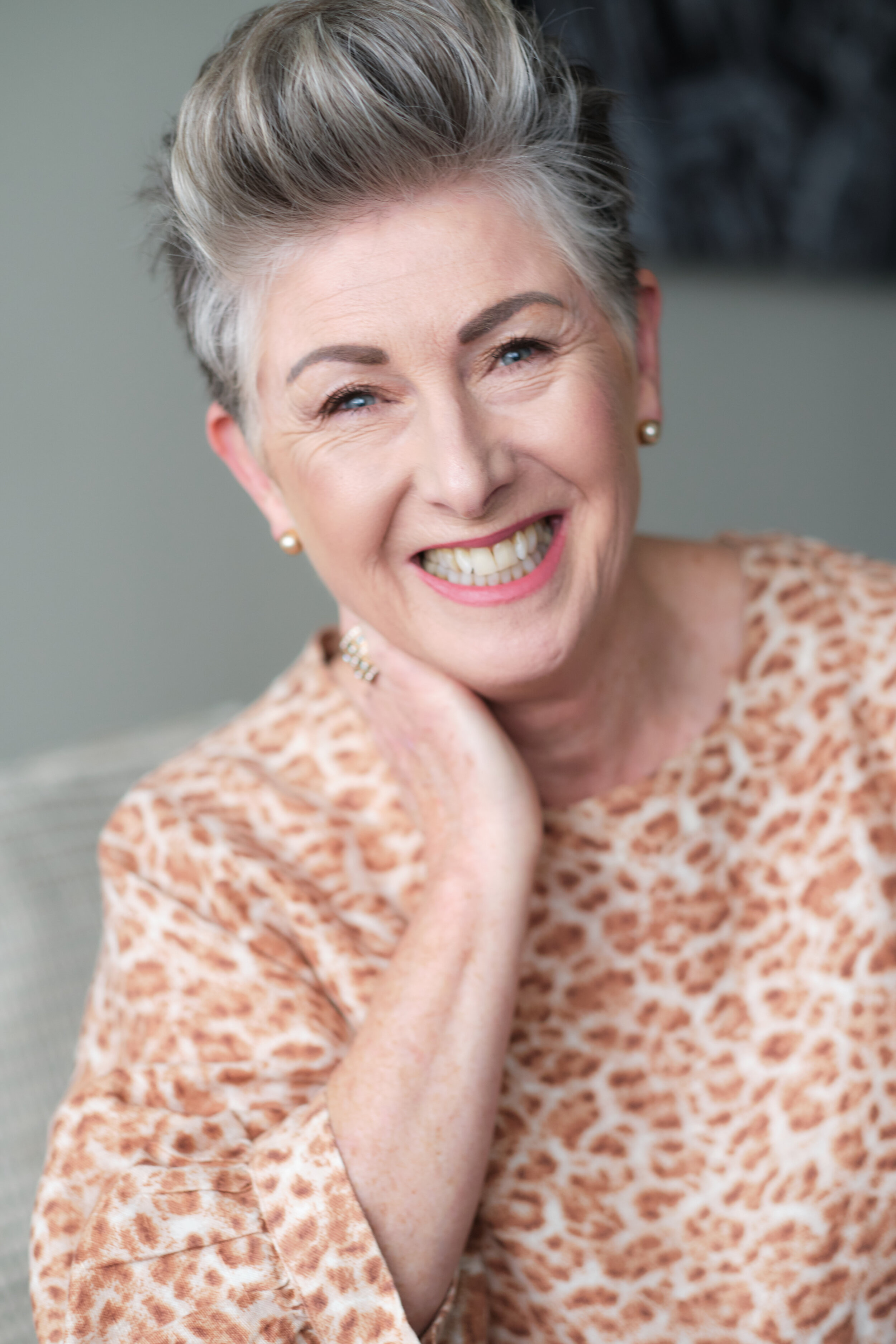Listen to the interview on your favourite podcast app: Apple Podcasts | Stitcher Radio | Spotify | Google
Introducing Kerene Strochnetter
Kerene is in the business of bringing the practice of mindfulness to the business and corporate world. Making the M-words (mindfulness and meditation) cool.
Kerene's career spans being a registered nurse, teacher, coach, consultant and now a business owner.
Her company, Mindful at Work, helps change the way people think and behave in business. Or as Kerene likes to put it, "stopping people from being such $#&^holes in the workplace".
What was your vision when you first started your venture?
I didn't have one. I don't believe in really clear visions.
Moving to Wellington, I began working in the corporate world. It was fascinating and I loved it. It was so different from working in public health and education.
After making several significant ‘faux pas' in my personal life, I discovered mindfulness.
While training as a coach, I was first introduced to mindfulness through neuroscience. Neuroscience was just becoming known - it's a blend of old age philosophical practices and what science has actually proven. To cut a long story short, I started meditating every day and followed meditation expert Dr Joe Dispenza.
I saw meditation as transformative for my own life. So much so that I realised if my coaching clients were practising mindfulness and meditation, then I wouldn't be working with such messed up people. That sounds very selfish, but some clients would vomit out such awful circumstances. They'd tell me all the reasons why their lives were problematic and they’d come to me believing they knew what I should be coaching them on, and that I could somehow fix it all. But I believed if we didn't explore under the surface - for the problems creating these thoughts and feelings - then we may as well be straightening deck chairs on the Titanic!
So, I began refusing to coach people until they started practising mindfulness.
There's a particular therapy called Acceptance and Commitment Therapy, which is basically mindfulness with legs. But back then, I had no idea such a thing existed.
The wonderful Sam Hannah first introduced ACT to me. Then recently, while I was in the middle of writing a mental health program with Michael Bunting, he suggested that we incorporate ACT. After a lot of research, I discovered that it’s a form of mindfulness therapy. It helps people to get clear about what really matters and to understand how they could be self-sabotaging their ideal life.
You see, I've never been interested in teaching people to be better meditators! I'm interested in people knowing themselves better, knowing what matters and having the tools to create the life they really want. It's not about having a perfect life; it's about not sleepwalking through life.
I work often with high functioning corporate leaders. These people are successful but suffering. Their lives are incredibly busy. They're constantly distracted by technology and can really relate to the impact their successful life is having on them. So, I combine mindfulness with leadership coaching.
But it's not just about meditating. It's about changing behaviour and we're not built for change as human beings. We're created to be risk-focused, highly distractible and hyper-vigilant. Basically, we’re designed to live as long as we possibly can. Evolutionary wise, anything that was dangerous killed you and if you're removed from your tribe, you dead.
So, you get a performance review with 29 expectations exceeded and 1 unmet. Which one do you focus on? Which wakes you at 3am worrying about losing your job, not being able to pay the mortgage? It's where our minds go. We are really programmed to be miserable!
Mindfulness is a practice to rebalance the score. Tuning into life, not living so much in our heads, and stopping to smell the roses.
If you have no way of observing your thoughts, you will become them.
We don't think about how gorgeous, brilliant, and talented we are. We think about our faults and what could possibly disconnect us from people. That's what we focus on. Our brain is there to keep us safe and connected.
How did you deal with early setbacks?
My philosophy has always been to stay in action and get good advice from people you trust. Don't sit and ruminate because your mind will do you in.
If anything, my mindfulness practice makes me aware of when I'm ruminating. I'm really in the business of managing my own mind. When I experience setbacks, I use my practice to help. It doesn't make everything turn out perfect. But it stops me from going into ‘analysis paralysis’.
When a setback hits, I tend to get more lost in my mind. For example, if I'm keynote speaking and I'm going to talk to 100 accountants. So, managing my mind is really important. It's also about getting myself into that peak performance state. I meditate every day. I practice yoga, walk or go to the gym every day. I eat and sleep really well. When I'm in top form and walk out to deliver, when I'm confident and energised – well of course - it will go well.
I know my stuff. If I find myself wanting more preparation time, that's a warning to me to stop, pause, breathe, be present and connect. My best tends to occur when I'm really connected with myself and those in front of me.
I notice the anxiety. If you don't experience anxiety before a big speaking event, there's probably something wrong with you. Just relabel that anxiety as excitement, knowing it's here to help.
Getting yourself into peak condition is really important. Self-care. This is the opposite of what we're often taught. People can see self-care as incredibly selfish, but when you're in top form and feeling really well, it just tends to spill over.
Was there a time that you wanted to give up?
No. I've had low moments, but there's never been a time where I've wanted to give up.
Were there any traps that you fell into?
It's always going to be self-doubt. My job is knowing how to deal with it. That doesn't mean positive thinking and affirmations. You have to feel and believe it.
As an Australian, I've struggled to promote myself. Culturally it makes me cringe. Don't talk yourself up! And yet, I am selling myself, so there's a real tension there.
For example, I know some cool, famous people. But it makes my skin crawl to namedrop. Self-doubt, it's innate in all of us. We all run the script that we're not good enough. It's constant. Practice seeing it, letting it sit there and choosing differently.
A lot of people think "if only I could get rid of this voice". Most aren't even aware they have that voice. You can't get rid of it. It’s there for a reason, to keep you safe. Just let the voice be there and choose differently.
Mindfulness is all about awareness. If you don't have awareness, then you're just at its mercy.
Just notice when the voice pops up.
I've coached so many people. It doesn't matter how beautiful, wealthy or successful they are, they all have self-doubt. Absolutely. Everybody. It's just part of the human condition.
“The Wellington Hustle Interview Project is brought to you by timson.co.
Headshots and Story Brand Photos. Show off your vibe and attract your tribe.”
What inspires and motivates you?
My friends. I surround myself with brilliant people - those who are kind and have high emotional intelligence. It takes an incredibly brave person to be kind and that inspires me.
A resource that I love is the book called Women Who Run With The Wolves by Clarissa Pinkola. I first came across this book, through a woman's book club. They were all raving about it. I've probably read it 30 times. One of my men friends asked me if it was a feminist book, but it isn't, although it has a feminist intent. As women, certainly I know I have this, we have a strong resistance to being contained.
I highly recommend this book to anybody who wants to read it. Be prepaid to be challenged, but there is gold inside. The author Clarissa Pinkola Estes - English is not her first language, so it can be a challenging read. But it's a beautiful, beautiful book.
My sons, when they were teenagers, would tease me by saying "Oh yeah, but you run with the Wolves don't you mum?"
Can you describe a breakthrough that you're particularly proud of?
When I realised that I was not listening to my inner knowing or gut instinct. Whatever you want to call it.
I was flying to Western Australia and stumbled upon the book Eat Pray Love in Auckland Airport. I was determined not to read it because I thought it was soppy. But I was bored. So, I opened it up and inside the front cover was the message "tell the truth, tell the truth, tell the truth". And I had this whack in my mind that said: "to yourself, to yourself, to yourself".
At that moment, I knew I'd been lying to myself. Not listening to my own heart, which was the reason why I was escaping to Western Australia.
I had only just started meditating. Tuning in to your own inner knowing is a big part of mindfulness. Helping you make wiser choices in life.
What do you see as being your biggest lesson?
Being true to yourself.
If you can't be truthful to yourself, it's impossible to tell the truth to anybody else.
Has your vision always been clear and how has it evolved?
No, it's never been clear. I don't think it has to be. Occasionally, a few people may have a very clear vision that they stick to. But I believe most of us stumble our way through the dark, looking for signposts.
If you listen to your heart, great advice and be well prepared you'll find your way. This sounds cliché, but, be prepared to screw up regularly and learn from it.
I have a clear sense of purpose. Making a difference, having fun and making some money.
My youngest son has the attitude towards life of 'If it's not fun, I'm not doing it'. That doesn't mean everything is all wonderful for him. He seriously thinks about his life choices. If something isn't enjoyable, then he stops doing it pretty quickly.
What would you do differently if you had to start again from scratch?
I would listen to my own gut. But in saying this, I didn't have the skills in the beginning to do so. I feel this is to do with my upbringing. I'm not blaming it. My upbringing created a big chasm between me and my emotions.
If I had the perfect upbringing where I was given permission to tap into my emotions, then I wouldn't be the person, or doing the work, that I am today.
I'm incredibly imperfect. A huge thing is being able to see your own ridiculousness. Be prepared to laugh at that inner critic and the amazing ways that you have screwed up.
My father taught me to see the humour in everything.
Connect with Kerene
If you have enjoyed this article and want to start a conversation with Kerene, you can reach out on:
Website: Mindful at Work
LinkedIn: https://www.linkedin.com/in/kerenestrochnetter
Or order Kerene’s book, dive in and up your mindfulness: Crazy Busy.
Please don’t forget to tell Kerene that I sent you.
Interview and photography by Wellington Headshots, Tim Morrison (all rights reserved)











